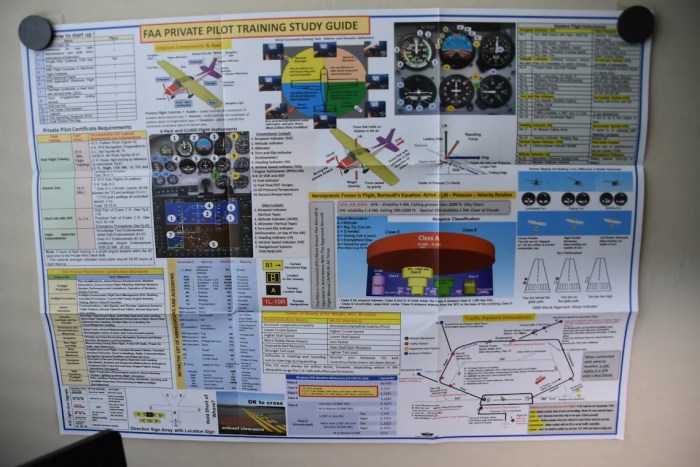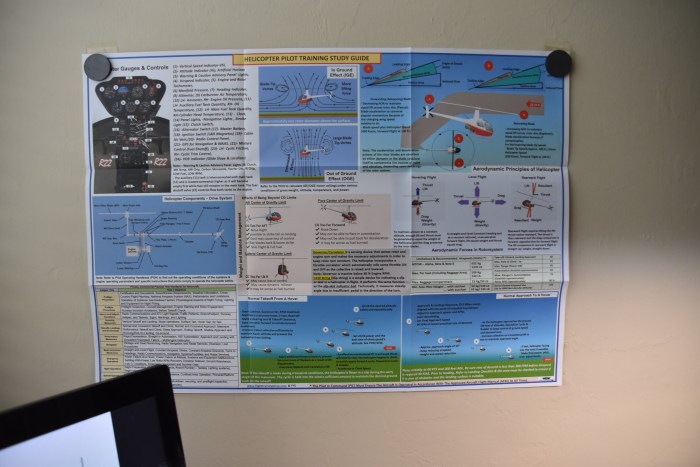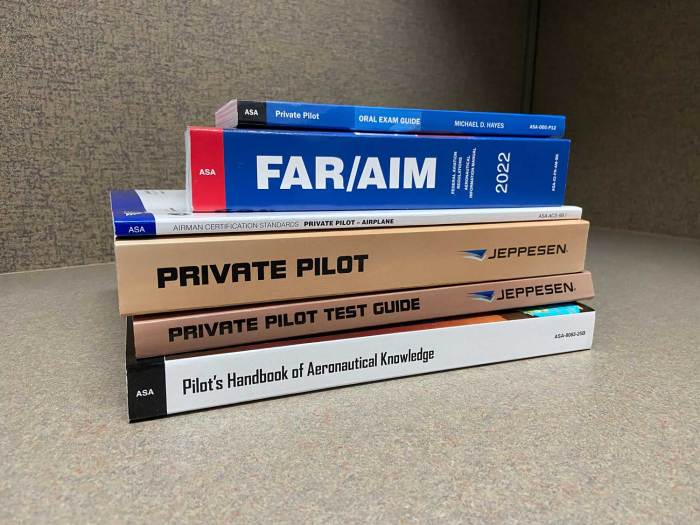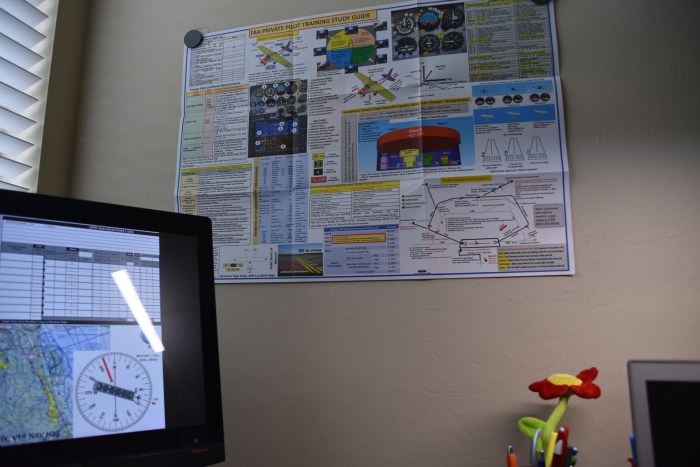The ACS Private Pilot Study Guide is your ultimate companion on the path to becoming a certified pilot. With a comprehensive approach, it covers all the knowledge areas, provides effective study techniques, and offers practice questions to help you soar through your exams.
Inside this guide, you’ll find a wealth of information, including:
ACS Private Pilot Study Guide Overview
The ACS Private Pilot Study Guide is an essential resource for aspiring private pilots preparing for the Airman Certification Standards (ACS) exam. This comprehensive guide provides a structured and organized approach to studying for the knowledge test, covering all the required topics and objectives.
Structure and Organization
The study guide is divided into 18 knowledge areas, each addressing a specific aspect of private pilot knowledge. These areas include basic aerodynamics, aircraft systems, navigation, meteorology, and human factors. Each knowledge area is further subdivided into specific learning objectives, ensuring thorough coverage of the exam content.
The ACS Private Pilot Study Guide is an invaluable resource for aspiring pilots. It covers all the knowledge and skills required to pass the FAA Private Pilot Knowledge Test. Whether you’re a seasoned pilot or just starting out, understanding the walk ons drink menu prices can help you plan your budget for a post-flight celebration.
The ACS Private Pilot Study Guide is a comprehensive tool that will help you prepare for your journey to the skies.
The guide also includes practice questions, sample test questions, and detailed explanations to reinforce understanding and prepare students for the actual exam.
Knowledge Areas Covered
The ACS Private Pilot Study Guide covers a wide range of knowledge areas essential for aspiring private pilots. These areas encompass the fundamental principles of aviation, operational procedures, and safety practices. Understanding these areas is crucial for developing the necessary skills and knowledge to operate aircraft safely and effectively.The
study guide organizes the knowledge areas into logical sections, each focusing on a specific aspect of aviation. These areas include:
Aeronautical Knowledge
- Aerodynamics: Principles of flight, aircraft performance, and stability.
- Meteorology: Weather patterns, weather forecasting, and the effects of weather on aircraft.
- Navigation: Chart reading, flight planning, and instrument procedures.
- Aircraft Systems: Components and operation of aircraft systems, including engines, electrical systems, and flight controls.
Flight Operations
- Basic Flight Maneuvers: Takeoffs, landings, turns, and stalls.
- Advanced Flight Maneuvers: Emergency procedures, instrument flying, and cross-country navigation.
- Aircraft Performance: Factors affecting aircraft performance, such as weight, altitude, and wind.
- Human Factors: The role of human factors in aviation safety, including pilot decision-making and situational awareness.
Air Law and Regulations
- Federal Aviation Regulations (FARs): Rules and regulations governing aviation operations.
- Air Traffic Control (ATC): Procedures for communicating with ATC and understanding ATC instructions.
- Airport Operations: Rules and procedures for operating at airports, including taxiing, parking, and communication.
- Airspace: Classification of airspace and rules for operating in different types of airspace.
Study Methods and Techniques

The ACS Private Pilot Study Guide provides a comprehensive review of the knowledge and skills required for the Private Pilot Certificate. Effective study methods are essential for maximizing the benefits of this resource.
Time Management
Plan a study schedule that allocates specific time slots for studying. Break down the material into smaller sections and set realistic goals for each session. Prioritize topics based on difficulty and time constraints.
Note-Taking
Take notes while reading the study guide to enhance comprehension and retention. Use a system that organizes information effectively, such as highlighting key points, creating diagrams, or using flashcards.
Review Strategies
Regularly review the material to reinforce learning. Use spaced repetition techniques, such as reviewing notes after a day, a week, and a month. Practice answering questions and solving problems to test your understanding.
Practice Questions and Mock Exams

The ACS Private Pilot Study Guide includes a comprehensive collection of practice questions and mock exams to help you assess your understanding of the material and identify areas where you need further improvement.
The practice questions cover a wide range of topics, including aerodynamics, meteorology, navigation, and flight planning. They are designed to test your knowledge of the key concepts and principles that you need to know to pass the Private Pilot written exam.
Mock Exams
The mock exams are full-length practice exams that simulate the actual Private Pilot written exam. They are a great way to test your overall readiness for the exam and to identify any areas where you need to focus your studies.
Additional Resources: Acs Private Pilot Study Guide

Complementing the ACS Private Pilot Study Guide, various additional resources can enhance the learning experience and provide a comprehensive understanding of the knowledge areas.
These resources include online courses, interactive apps, videos, and study groups, each offering unique advantages to support your preparation.
Online Courses
- Provide structured lessons and video tutorials covering all knowledge areas.
- Offer interactive quizzes and practice exams to reinforce learning.
- Allow for self-paced study and flexible scheduling.
Interactive Apps
- Engage learners with gamified exercises and simulations.
- Provide bite-sized learning modules for on-the-go studying.
- Track progress and provide personalized feedback.
Videos
- Offer visual demonstrations of complex concepts.
- Provide expert insights and real-world examples.
- Complement textual materials and enhance understanding.
Study Groups, Acs private pilot study guide
- Facilitate peer-to-peer learning and knowledge sharing.
- Allow for discussion, Q&A sessions, and group study sessions.
- Provide motivation and accountability through collaboration.
Case Studies and Real-World Examples

Case studies and real-world examples are valuable tools for connecting theory to practice in private pilot training. They provide concrete illustrations of how the knowledge and skills covered in the study guide are applied in actual flying situations.
By examining case studies, students can see how pilots have successfully navigated challenges, made decisions, and solved problems in real-world scenarios. This helps them develop a deeper understanding of the practical aspects of flying and the importance of applying their knowledge in a safe and effective manner.
Weather-Related Case Study
Consider the case of a pilot flying a small aircraft who encounters unexpected weather conditions. The pilot must quickly assess the situation, determine the best course of action, and communicate with air traffic control to ensure a safe outcome.
This case study demonstrates the importance of weather knowledge, situational awareness, decision-making skills, and communication in real-world flying. It also highlights the need for pilots to be prepared for unexpected events and to have the ability to adapt to changing circumstances.
FAQ Guide
What knowledge areas does the study guide cover?
The study guide covers all the knowledge areas required for the Private Pilot Certificate, including aerodynamics, meteorology, navigation, and aircraft systems.
How can I use the practice questions and mock exams?
Practice questions and mock exams are invaluable for assessing your progress and identifying areas where you need additional study. Use them to test your knowledge and build confidence before the actual exam.
What additional resources complement the study guide?
The study guide is complemented by a variety of additional resources, such as online videos, interactive quizzes, and a discussion forum. These resources can enhance your learning experience and provide additional support.